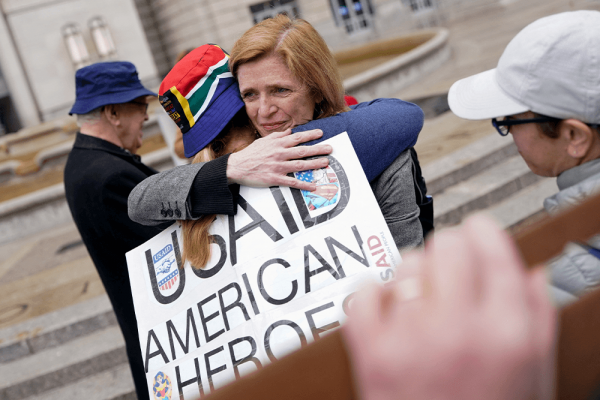I remember crying when saying my final goodbye to Blanca, the domestic worker who lived with us in Colombia. I had no memories of life without Blanca, and there was a real possibility that I was never going to see her again. My parents had decided to immigrate to the United States, hoping for better opportunities for my younger brother and me.
The year was 2001, and Colombia was immersed in a full-scale military conflict against armed guerrillas, who controlled large swaths of the countryside. The economy was in shambles, while the “narco” economy — profits from cocaine sales in North America and Western Europe — was booming. The social fabric of Colombia was threatening to rip apart.
The final straw for my family came when an uncle, who had been a high-ranking member of the Colombian military, was specifically threatened with assassination by guerillas. My parents feared the threat may extend to our family. The decision to emigrate was made for us.
In the last three decades, a predominant American view of Colombia has been that of a narco-state, powered by violent, money-hungry men. These skewed opinions infect popular culture and discussions about Colombia — many Americans’ only knowledge about this country comes from what they see in the Netflix series Narcos.
In the current political moment, some Americans may even refer to Colombia as a “shithole country.”
According to sources close to the conversation, the president of the United States recently referred to immigrants from Haiti, El Salvador, Africa, and other regions of the Global South as coming from “shithole countries.” Trump was lamenting the fact that these people, based on the circumstances of their home country, don’t have as much to contribute to the United States as people from more developed (read: whiter) countries, such as Norway.
His comments come at a moment when the Trump administration and allies in Congress are using the fate of 700,000 Dreamers (undocumented immigrants who were brought to the U.S. by their parents at a young age) and DACA recipients to extract nationalist promises from Democrats. The dissonance of saying that Dreamers should be allowed to stay (most of them from “shithole” places), while railing against immigrants from certain countries, underscore a fundamental fact of the Trump administration: Racism and white supremacy are the main motivators, not policy proposals and political theory.
One trend in the Trump era has been the poetic timing of Trump’s racist and bigoted remarks and actions. During last year’s Thanksgiving season, at an event meant to honor Native American veterans, Trump revived his favorite racist moniker for Sen. Elizabeth Warren, denigrating the cultural identity of the honorees. Few of us have forgotten last August, when Trump took time after the Charlottesville incident to defend the “good people on both sides.” Yesterday’s remarks in the White House, which, according to sources, targeted Haiti specifically, came one day before the eighth anniversary of the Haitian earthquake.
But Trump’s comments are not isolated beliefs in modern American political thought. For years, conservatives and anti-immigrant nationalists have questioned why the United States takes so many immigrants from certain countries (usually ones with browner or blacker populations). Many religious conservatives still defend the fundamental teachings of Max Weber’s “Protestant work ethic,” although its theories have been disproven many times by sociologists and economists. The idea of “American exceptionalism,” a cornerstone of this country’s self-mythology, implies that other countries are much worse off than us.
What Trump inartfully articulated wasn’t a betrayal of American values. It was a vulgar confrontation with the lies upon which modern American society has been built.
In a recent insightful segment on Full Frontal with Samantha Bee, the comedian/late-night host interviewed Rev. A.R. Bernard, the only member of Trump’s White House Evangelical Advisory Board to resign from this board in protest. Rev. Bernard is the senior pastor of the megachurch Christian Cultural Center in New York, and he says he resigned from the board after Trump’s shameful false equivalency after the racial violence in Charlottesville. At one point in their discussion, Rev. Bernard claims that he believes God allowed someone like Trump to be elected as a parallel to the reign of Saul in the Bible: giving the people what they want to expose “spiritual and moral condition of the nation.”
The Trump administration figures to be a four-year reckoning with the sins of America.
In February, my family will have lived in the United States for 17 years. My parents have been the model for immigrant excellence, providing for their kids through hard work and sacrifice. My parents are law-abiding taxpayers who have refused “government handouts,” even when we really could have used the help. We became naturalized citizens in 2010. I graduated college in 2016, and my younger brother will graduate as an engineer in 2020.
Times have also changed for my country of birth. Last year, the Colombian armed conflict with the guerrillas officially ended with the signing of a historic peace agreement overseen by the UN. The economy is booming. The Colombian president, Juan Manuel Santos, won the Nobel Peace prize last year for his tireless efforts for the peace process — the first Colombian citizen to win the award.
Maybe Trump could take some advice from “shithole countries.”
Got something to say about what you're reading? We value your feedback!







